The College of Education welcomes faculty starting this fall for the 2020-2021 academic year. Each department is joined by faculty who bring new areas of expertise and interests that will bolster our research, teaching, and leadership as we work together to Reimagine Education.
To learn more about our new faculty, click on their name to read interviews discussing their research areas, and what they’re excited about for their new position:
J. Mark Eddy, Professor
Educational Psychology | Kinesiology and Health Education
Seth Schwartz, Professor
Educational Psychology | Educational Psychology
Doris Baker, Associate Professor
Curriculum and Instruction | Special Education
Michelle Perez, Associate Professor
Curriculum and Instruction
Emma Carene Gargoetzi, Assistant Professor of Practice
Curriculum and Instruction
Carlos Nico Gomez, Assistant Professor of Practice
Curriculum and Instruction
Lorna Hermosura, Assistant Professor of Practice
Curriculum and Instruction
Mitch Ingram, Assistant Professor of Practice
Curriculum and Instruction
Kemper E. Lipscomb, Assistant Professor of Practice
Curriculum and Instruction
Desiree Pallais, Assistant Professor of Practice
Curriculum and Instruction
Jason Rosenblum, Assistant Professor of Instruction
Curriculum and Instruction
Brian Keller, Assistant Professor
Educational Psychology
Michael Freedberg, Assistant Professor
Kinesiology and Health Education
Sara Hussain, Assistant Professor
Kinesiology and Health Education
Jasdeep Kaur, Assistant Professor
Kinesiology and Health Education
Kelvin Phan, Clinical Assistant Professor
Kinesiology and Health Education
J. Mark Eddy
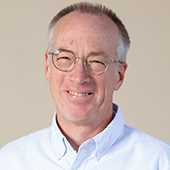
What institution were you most previously with and what was your role?
I served as the director of community-based research with the Family Translational Research Group at New York University. I am returning to Texas, where I graduated from Denton High School and from Texas A&M University, after 35 years of work as a scientist and clinician in Colorado, Oregon, Pennsylvania, Washington State, and New York City.
What are your research interests or area of specialty?
I am a clinical psychologist and a prevention scientist. I conduct studies of programs intended to improve child and family well-being and to reduce the likelihood of child and family problems. Most of my work in the past decade has focused on conducting randomized controlled trials (RCTs) of preventive intervention programs that I have either helped develop or that are already well-established within community settings.
I am particularly interested in the impact of multi-component, culturally- and science-informed programs. I have conducted RCTs in school systems, the juvenile justice system, the adult corrections system, the child welfare system, and the military. Currently, I have active trials of a long-term (i.e., 12 years) professional youth mentoring program, of a multi-component primary school-based program targeting youth violence in Honduras, of a multi-component relief nursery program for child and families at risk for involvement with the child welfare system, and of a multi-component permanent supportive housing for men and women recently released from state prison.
What sparked those interests?
Throughout my life, my parents have been actively involved in issues of concern to their local community as well as in the country and the world at large. As a child, I went along with my mom and dad to a wide range of community activities, and starting in elementary school, with their support became actively involved in a variety of community service organizations. I have continued to engage in community service throughout my adult life.
What are you excited about for your new position at UT?
I am entering a college that is blessed with students, faculty, staff, and leadership that have immense talent, a passion to serve, and a commitment to a vision and a mission that I support.
The vision of the college is truly exciting of which to be a part: “We are agents of change committed to transforming education and health research, practice, and policy to ensure the thriving of children, families, schools, and communities”
The mission of the college matches what I want to do in the coming years.
What do you hope to contribute to the College of Education or the Austin community?
I hope to work with my colleagues to develop and implement a new curriculum in prevention science, to be a positive and supportive mentor and cheerleader for high school, undergraduate, and graduate students, and to become an active collaborator on research intended to benefit children and families in the Austin area, the state of Texas, and beyond.
What is your program area within your department?
I have joint appointments in the School Psychology Program Area in the Department of Educational Psychology and in the Health Behavior and Health Education Program Area in the Department of Kinesiology and Health Education.
Seth Schwartz
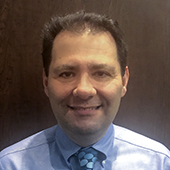
What institution were you most previously with and what was your role?
I am leaving the University of Miami in December after more than 20 years. I’m a tenured full professor in the Department of Public Health Sciences. I co-founded the PhD program in prevention science and community health – only the second such program in the nation in 2015 when we launched it. I was also an IRB member, served on the tenure and promotion committee, and worked with the CITI team on several new courses. I taught courses on research ethics, theories, health equity, and biostatistics. I’m currently writing a book on how to write for publication.
What are your research interests or area of specialty?
Most broadly, my interests are in personal and cultural identity among adolescents and emerging/young adults. I am especially interested in acculturation, culturally related stress, and their effects on family functioning and on positive (well-being, flourishing, contributions to society) and negative (substance use, problem behavior, depressive symptoms, anxiety) among Hispanic/Latino youth and parents from immigrant families.
What sparked those interests?
Living and working in south Florida, which is an extremely culturally diverse area with a large immigrant population, drew me to the study of immigration, acculturation, and culturally related stress. I can remember teaching a class many years ago when students talked about their and their families’ immigration experiences. I was amazed by the challenges these people had faced, how they had struggled just to get to the United States, and how so many of them were thriving and realizing the American dream.
What are you excited about for your new position at UT?
I am excited to work with so many amazing people in the College. I’ve already talked about research ideas with many of them. UT is a world-class institution, and I can’t wait to start.
What do you hope to contribute to the College of Education or the Austin community?
I hope to contribute expertise in the cultural determinants of health, in immigrant families, and in both prevention science and positive development. I hope to help launch a Ph.D. program in prevention science at UT. I hope to empower immigrant families to contribute to, and to be supported by, their local communities. I hope to bring the lessons I’ve learned from my 20 years working in the south Florida immigrant community to Austin and to UT.
What is your program area within your department and academic rank?
I will start virtually at UT in January 2021 and will start in person in August 2021. I will be housed in Kinesiology and Health Education (75 percent) and in Educational Psychology (25 percent).
Doris Baker
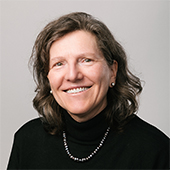
What institution were you most previously with and what was your role?
Before starting at UT, I was an associate professor in the Department of Teaching and Learning in the Simmons School of Education at Southern Methodist University. During the past year, I was the co-director of the Simmons Schoolwide Ph.D. program. I also chaired the master’s in bilingual education program for six years.
What are your research interests or area of specialty?
My area of specialty is the development and testing of interventions and assessments designed to improve the academic outcomes of bilingual students, English learners, or Spanish-speakers at risk for and with learning difficulties and disabilities. Recently, I have been developing an English language acquisition system to build student in-depth vocabulary knowledge in science and social studies in the early grades using an intelligent tutoring system and a learning management system. I am also interested in working with Latinx families to help them acquire the tools to support their children’s academic development at home in Spanish and in English.
What sparked those interests?
Prior to getting my Ph.D., I was a Spanish instructor at the University of Oregon for 14 years. With a colleague, we created an internship where students would go to community organizations and schools to support teachers, administrators, and social workers who worked with Latinx who only spoke Spanish. This experience helped me learn more about the needs of Latinx in the US, particularly in terms of opportunities for them to succeed academically and professionally. My own personal background has also contributed to my research interests. I am a Latina immigrant, I lived in many different countries, and throughout my life, I have had to navigate different languages and cultures, which helps me identify with the needs of others who have similar experiences.
What are you excited about for your new position at UT?
I resonate with the college’s focus on equity and diversity, paying attention to place and context, and supporting students and the community through transitions. These are probably the three foci I have emphasized in my research and teaching. Specifically, in relation to my position at UT, I am very excited and honored to be part of the initiative to create an interdisciplinary bilingual education program where all departments work together to engage in research that helps improve the academic, health, and socioemotional well-being of the Latinx population. Very little research and leadership initiatives have combined these different aspects to improve their lives, although Latinx represents approximately 40 percent of the population in Texas.
What do you hope to contribute to the College of Education or the Austin community?
My hope is to be able to support the College of Education initiatives with my research and teaching. The College is at the forefront of this new initiative and through my interactions with faculty and students, I have been able to see their commitment to fulfill this vision by working together and conducting rigorous research that can provide the foundation for improving education equity for all Latinx groups, where they can thrive along with their peers. I know that one person cannot change the system alone. Meaningful change occurs when individuals, working across multiple disciplines collaborate, incorporating a variety of research approaches, including ways new technologies can contribute to solving current problems.
What is your program area within your department, and academic rank?
I have a dual appointment. I am in the Department of Special Education (SPED), and in the Department of Curriculum and Instruction. My program area in SPED is Learning Disabilities/Behavior Disorders.
Michelle Perez
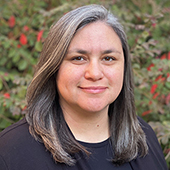
What institution were you most previously with and what was your role?
Prior to joining the faculty at UT, I was an associate professor and the J. Paul Taylor Endowed Professor of Early Childhood Education at New Mexico State University.
What are your research interests or area of specialty?
I’m very passionate about transforming the early care and educational experiences of young children of color. To contribute to these efforts, I’ve theorized with women of color feminisms, which provide the means to challenge dominant Western/Global North constructions of young children and early childhood studies as a field.
What sparked those interests?
Having family educational experiences of un/belonging and witnessing a continued need to rethink how we approach curriculum and pedagogy so that it’s more culturally sustaining has driven my desire to work towards educational change for future generations. As a former childcare educator, I’m also very concerned about the well-being of preschool teachers (and teachers in general), sparking my interest to advocate for equity for early childhood professionals. They are vital members of our communities and therefore, should garner greater respect through the institution of equitable wages, benefits, and professional spaces that foster their well-being.
What are you excited about for your new position at UT?
I am most excited about working with the amazing students at UT, especially students who have been historically underrepresented in higher education. I am also excited to work among the wonderful faculty who have a strong commitment to social justice and equity in education.
What do you hope to contribute to the College of Education or the Austin community?
I hope to build on ongoing efforts at UT to create a welcoming space for undergraduate and graduate students of color, while also collaborating with early childhood educators of color and other stakeholders in surrounding communities to be what Bettina Love calls a co-conspirator in educational equity efforts.
What is your program area within your department?
My appointment is in Early Childhood Education.
Emma Carene Gargoetzi
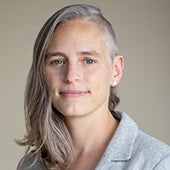
What institution were you most previously with and what was your role?
Prior to arriving at UT Austin I was finishing up my Ph.D. in race, inequality, and language in education and mathematics education at Stanford University in California.
What are your research interests or area of specialty?
My research examines how young people negotiate power and identity as they make sense of the world and themselves through mathematics and in their math learning spaces.
What sparked those interests?
As a special educator and high school math teacher in Brooklyn, N.Y., for six years I watched my students with awe as they moved through their daily lives and classrooms, each space with different expectations, and deftly navigated extremely complex power structures, often resisting or challenging inequities in creative ways. I strive to learn more about these forms of ingenuity in order to create more possibilities for solidarity with youth in pursuit of their own desires and imagined futures.
What are you excited about for your new position at UT?
I am so excited about getting to know my new amazing colleagues as well as the students.
What do you hope to contribute to the College of Education or the Austin community?
I hope to contribute an interdisciplinary perspective that brings together diverse perspectives from mathematics education, sociocultural anthropology, and studies in race and ethnicity.
What is your program area within your department?
I am a member of the STEM Education Department and part of Curriculum and Instruction.
Carlos Nico Gomez
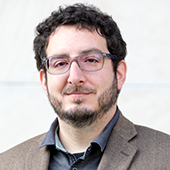
What institution were you most previously with and what was your role?
Before coming to the University of Texas at Austin, I was an assistant professor of mathematics education at Clemson University with a joint appointment in the Department of Teaching and Learning and the Department of Mathematical Sciences.
What are your research interests or area of specialty?
I am interested in the developing mathematics identities of students and teachers. My current project is looking at the mathematics identities of upper elementary Latinx students in predominantly white institutions.
What sparked those interests?
After a project I was working on fell through, I reflected and questioned many of the motivations and goals I had for my career. As I continued through my identity crisis, I returned to the literature for help, particularly Anzaldúa. I was told early on that all research is autobiographical and I had lost that in the work that I was doing. A dialogue was then started with a graduate student collaborator about the next project. We found a space that benefited us both personally and academically.
What are you excited about for your new position at UT?
I’m looking forward to building new collaborations and finding new intersections with others’ works.
What do you hope to contribute to the College of Education or the Austin community?
I hope to be able to demonstrate the mathematical brilliance of Latinx students in the Austin area. There is so much to learn about Latinx students’ mathematics and few opportunities for those outside of education to see it.
What is your program area within your department?
STEM Center in the Department of Curriculum and Instruction.
Lorna Hermosura
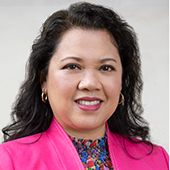
What institution were you most previously with and what was your role?
Prior to my current role, I was finishing up my Ph.D. and working at Georgetown Health Foundation as a Program Officer. Prior to pursuing the Ph.D., I was an administrator of various grant-funded education programs so being on the funding side was an invaluable learning experience. As the foundation embraced the social determinants of health, I was able to establish an education initiative that provides wrap-around services to support adults to attain a technical certification and ultimately a job that pays a livable wage. In addition, I developed and led a cultural proficiency training series for non-profit executives and staff to understand the socio-historical and policy structure that underlies disproportionate poverty.
What are your research interests or area of specialty?
I am interested and specializing in trauma-informed practices, restorative practices, implementation, and the school-to-prison pipeline.
What sparked those interests?
As an undergraduate psychology major, I interned then worked full-time with a non-profit that served foster children and youth. I saw first-hand the debilitating cycle of trauma, abuse, neglect, and poverty. Understanding that people don’t choose the circumstances in which they are born, I saw education as an essential vehicle for empowerment. I went on to earn a master’s in counseling and focused my career on strengthening the P-16 pipeline, specifically college access, dropout prevention, and college student retention for low-income and first-generation students. For my doctoral dissertation in UT’s Education Leadership and Policy program, my data were essays written by youth who were living the school-to-prison pipeline (325 total, 46 percent were incarcerated, 43 percent were engaged with the juvenile justice system, 11 percent were at risk).
My research interests are informed by these and other aspects of my lived experience. Trauma-informed practices and restorative practices are research-based, effective approaches to working with the most vulnerable among us. In addition, I am an implementer at heart and I love both creating and administering new initiatives as well as turning around struggling ones. I see all of this work as contributing to the dismantling of the school-to-prison pipeline. It gives a fighting chance to those who are living in extremely difficult circumstances and ultimately it allows us to acknowledge the humanity in each other and thus in ourselves.
What are you excited about for your new position at UT?
I am excited and grateful to be able to teach our next generation of teachers, educators, and youth and community leaders. I am also excited to conduct research and contribute to the literature. What starts here truly can change the world.
What do you hope to contribute to the College of Education or the Austin community?
I hope to contribute my research interests and expertise, my big heart, and a lot of home-baked goods (I’ve been getting a lot of practice during this pandemic)!
What is your program area within your department?
I am in the Restorative Practices/Youth and Community Studies area within the Department of Curriculum and Instruction. I also recently received notice of the funding of my grant application to the U.S. Department of Justice, Office of Juvenile Justice and Delinquency Prevention. I will be principal investigator on this grant that will provide training in trauma-informed practices and diversity, equity, and inclusion to critical contact points along the juvenile justice system in Williamson County, Texas. These contact points include schools and school resource officers, law enforcement, as well as legal, judicial, and juvenile justice staff. I will lead this work in my joint appointment with the Institute of Urban Policy Research and Analysis in the College of Liberal Arts and in partnership with Williamson County Juvenile Services and Bluebonnet Trails Community Services.
Mitch Ingram
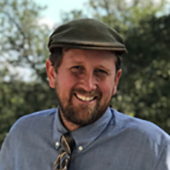
What institution were you most previously with and what was your role?
As I obtained my Ph.D. here at UT Austin during the last 6 years, I was an instructor throughout the journey. Prior to that, I was a bilingual teacher in Austin Independent School District for 14 years.
What are your research interests or area of specialty?
My research interests have to do with the sociolinguistic nature of humor amongst Latin@ individuals. Beyond the momentary laughter, deeper (dis)affiliative phenomena transpire to allow unique forms of resilience, expression, and community to surface.
What sparked those interests?
I have been given the opportunity throughout my 43 years to forge wonderful relationships with countless folks in a wide range of Latin@ communities. As a young person, I would help translate for my dad as I accompanied him to his jobs as a construction worker. More often than not, I noticed and participated in frequent bouts of joking, levity, and laughter with his co-workers, who were primarily Spanish speaking. This notion continues as a constant to the present date—powerful as a community resource, yet under-researched as a topic.
What are you excited about for your new position at UT?
Being an educator, I am excited about accompanying prospective teachers on the path of lifelong learning and making a difference in others’ lives one conversation at a time.
What do you hope to contribute to the College of Education or the Austin community?
My hope is to bring a heartening perspective to share with the burgeoning teachers in our community. The challenges that lie ahead for these burgeoning teachers are formidable, but as we say in Spanish, “La esperanza es lo último que muere” (Hope is the last thing to die).
What is your program area within your department?
I am in the Bilingual/Bicultural Program in the Department of Curriculum and Instruction.
Kemper E. Lipscomb
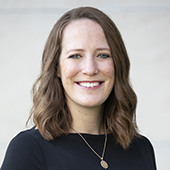
What institution were you most previously with and what was your role?
I was previously here at UT as a graduate student! Before graduate school, I was a high school science teacher in Palm Beach County, Florida.
What are your research interests or area of specialty?
I research how students learn science in schools. I am particularly interested in how students learn science and how students think differently about themselves and about computer science when computer science principles are integrated into science learning experiences.
What sparked those interests?
Through my coursework at UT, I had the opportunity to experience the ways that using principles of computer science has the potential to transform the ways people can make sense of scientific ideas. I was hooked ever since!
What are you excited about for your new position at UT?
I’m excited about doing what I love—teaching! I am also excited to be in an environment where I can continue to learn and grow.
What do you hope to contribute to the College of Education or the Austin community?
I hope to contribute a perspective on teaching and learning science that investigates the meaning of inquiry and cultural relevance.
Desiree Pallais-Downing
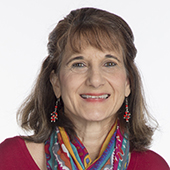
What institution were you most previously with and what was your role?
Before embarking on my Ph.D. at the University of Texas at Austin in 2015, I worked as a bilingual literacy consultant for USAID and World Vision in Texas, Peru, Bolivia, Ecuador, Guatemala, and Nicaragua. Consultant activities involved designing study tours and literacy materials and conducting meetings and professional development sessions with teachers and educators from a variety of backgrounds.
What are your research interests or area of specialty?
My areas of specialty include second language acquisition, literacy development, and teaching methodologies with prospective bilingual teachers. I have investigated the language and pedagogical contributions of Spanish-speaking bilingual teacher candidates when using informational texts in dual language classrooms. I am also interested in turn-around pedagogies in reading and writing that integrate skill development into a framework where the social context is considered, and where students’ personal dimensions are at the center.
What sparked those interests?
In several educational experiences in both Latin America and in the U.S., I have consistently found hidden talents in multilingual communities that are not usually revealed via mainstream mentalities or protocol-driven systems of information. Recently, my participation as an evaluator of a decade-long knowledge recuperation initiative in the South American Amazon consolidated my understanding of the contribution of qualitative methodologies to identify the role of historical factors, social context, and local perspectives as part of collaboration efforts in literacy.
What are you excited about for your new position at UT?
I am excited to teach prospective bilingual teachers as part of asset-based approaches and transformative experiences that can result in academic achievement and personal growth. I am especially inspired to be immersed in a community that values the Spanish language and the visions of Spanish-speaking communities, both for their own sake and to catalyze teaching and learning.
What do you hope to contribute to the College of Education or the Austin community?
I hope to empower bilingual teachers to display their pedagogical visions with confidence and to promote a passion for teaching based on a commitment to drawing from meaningful experiences in order to promote learning and contribute to make this world a more humane place.
What is your starting date, program area within your department, and academic rank?
I am in the Bilingual Bicultural Program.
Jason Rosenblum
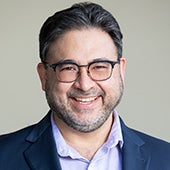
What institution were you most previously with and what was your role?
I was appointed in 2019 – 2020 by the Curriculum & Instruction (C&I) department in UT’s College of Education to teach and advise students in the Learning Technologies program. Prior to that I also was an adjunct with New York Institute of Technology to teach within an educational technology master’s degree targeting training professionals, and I have also taught and advised undergraduate and graduate digital media and game studies students as an assistant professor for St. Edward’s University here in Austin.
What are your research interests or area of specialty?
My research interest rests within the area of game-based learning as it relates to student engagement. Although games are often adopted as a technology innovation to support learning, little is often understood about the ways in which students are likely to work within the game space or collaborate with each other as they try to learn. Inquiry into player engagement, whether for virtual or real-life experiential game systems, is made stronger when examined through the lens of a game’s constituents. These constituents can include everything from digital artifacts such as sound, visuals, and the game’s interface, to real-life spaces that situate play, game roles that embody game interactions and choices, and the mechanics that structure interactions within both virtual and real-life spaces. Research into these complexities is critical if we are to design equitable and innovative game spaces that empower students as they learn and transform learning environments through play.
What sparked those interests?
During my time as an instructional technologist, I began to study the power that games and game approaches played to engage students, and I developed an interest in writing about these applied experiences. My early work focused on the scholarship of teaching and learning on augmented reality and virtual reality as implemented for both in-class and out of class experiential activities. One of these efforts led to a consequential adoption of a game-based simulation of the conflict in Syria, a detailed write-up of which is now being considered for publication. Following these efforts, and while a doctoral student at UT, I explored facets of engagement through sound, while serving on the Alien Rescue research team in the Learning Technologies program. I then broadened this research area for my dissertation to explore people’s experiences of sound across several different educational games.
What are you excited about for your new position at UT?
I have been asked to design and teach courses for a digital equity certificate to online Master’s degree pathway within the Learning Technologies (LT) program. The Learning, Equity, Action & Designs (LEAD) Certificate is planned as a fully online, 12-hour program. I’m excited to be working with Dr. Joan Hughes within LT on this design, and we believe this program serves a critical national need for technology integration professional development for K-12 teachers. Both the certificate and the Master’s program will help new and veteran teachers acquire a greater depth of applied knowledge to integrate technology and increase pedagogical knowledge while helping them to meet standards-based classroom learning outcomes. The program will help teachers learn about tech innovation, online learning, and design thinking using an equity-focused lens. We are also adopting a theory-into-practice approach that prioritizes real-life tech integrations while helping teachers to build communities of practice around these complex topics. The potential for impact and transformation here is of course very high, and I’m very excited to be asked to help build and launch this important effort.
What do you hope to contribute to the College of Education or the Austin community?
I hope that the design of LEAD (in both certificate in master’s form) will give local educators an easily accessible path by which they can apply knowledge about digital equity and tech innovation and integration in ways that help them to design 21st century learning environments and to adapt to modern-day challenges such as online learning and emergency remote teaching. I am also excited at providing existing LT students with both additional course options and additional research opportunities to support digital equity efforts.
What is your program area within your department?
I am in the Learning Technologies program.
Brian Keller
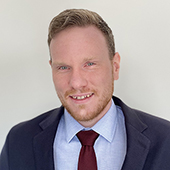
What institution were you most previously with and what was your role?
University of California, Lost Angeles (Post-Doctorial Scholar).
What are your research interests or area of specialty?
My main research interests are the statistical analysis of data with missing values, Bayesian statistics, and statistical computing. In addition to my methodological work, I currently develop Blimp statistical software.
What sparked those interests?
I don’t like the idea of black boxes. When I learned about statistics during my undergraduate studies, I really wanted to understand what is happening under the hood. Eventually, this led to both learning about Bayesian Statistics and programming statistical applications.
What are you excited about for your new position at UT?
Being able to collaborate with a diverse set of faculty and students.
What do you hope to contribute to the College of Education or the Austin community?
I hope to eventually (COVID permitting) work with community colleges around Austin and UT Austin to help promote underrepresented populations seek graduate studies in STEM fields.
What is your program area within your department?
Quantitative Methods in Educational Psychology.
Michael Freedberg
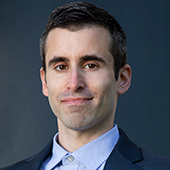
What institution were you most previously with and what was your role?
I worked at the National Institutes of Health (NIH) in the National Institute for Neurological Disorders and Stroke (NINDS) under Dr. Eric Wassermann as a postdoctoral fellow. My role in Dr. Wassermann’s lab was to oversee several clinical trials. In these trials, I used repetitive transcranial magnetic stimulation (rTMS) and functional neuroimaging to manipulate the connectivity of specific networks in the brain and determine whether this leads to lasting benefits on memory.
What are your research interests or area of specialty?
I am interested in understanding how the brain’s multiple memory networks interact to produce different types of memories. For example, we have networks dedicated to forming memory for skills (e.g. riding a bike) and other networks dedicated to remembering facts (e.g. knowing a bike has two wheels). Although we know much about each individual network, we know little about how they talk to each other. This is important because in our everyday life, these two networks are probably in constant communication. Furthermore, I am interested in how these networks function in older adults. In old age, the boundaries between networks become blurry, and this could contribute to age-related memory loss. To explore these interests, I use rTMS and fMRI to noninvasively affect connectivity in specific networks and memory in healthy adults.
What sparked those interests?
Learning is essential to my everyday life, both in my career and in my personal time. I have always been curious about the factors that affect how I learn and I have searched for strategies that help me remember the things that are important while trying to filter out the things that aren’t. Additionally, observing the debilitating effects of Alzheimer’s made me curious about how the learning process breaks down when we get older and whether the brain has any way of compensating or preventing this from happening.
What are you excited about for your new position at UT?
I am excited to begin my own research program and contribute to the missions of the Department of Kinesiology and Health Education and the College of Education. This department is filled with amazing people concerned with improving their communities and making an impact in the world. I am excited to be part of this group and look forward to potential collaborations.
What do you hope to contribute to the College of Education or the Austin community?
I hope to contribute a broader understanding of how our memory systems function, and how they change as we get older. My main goal is to use this information to develop targeted treatments to counteract the deleterious effects of aging on memory and to also determine how we can improve memory in healthy adults.
What is your starting date and your program area within your department?
I will be starting on January 1st, 2021, in the Department of Kinesiology and Health Education.
Sara Hussain
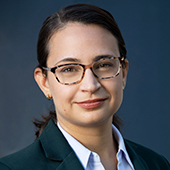
What institution were you most previously with and what was your role?
I was previously a postdoctoral fellow at the National Institute of Neurological Disorders and Stroke at the National Institutes of Health in Bethesda, Maryland.
What are your research interests or area of specialty?
I am interested in developing treatments that improve motor function after central nervous system damage, like stroke. To achieve this, I combine non-invasive brain stimulation, neuroimaging, and motor behavior assessments in healthy individuals and patients with neurological damage.
What sparked those interests?
I have always been interested in human movement due to my involvement in sports growing up. During my undergraduate studies, I was fascinated by how the human nervous system controls movement, how neurological injuries disrupt movement, and how neuroplasticity could help restore movement after these injuries. After working in a research lab as an undergraduate, I fell in love with the research process and decided to pursue it as a career.
What are you excited about for your new position at UT?
I am excited to be a part of UT’s vibrant scientific and educational community. UT has an intellectual energy about it that is very inspiring, and I look forward to collaborating with students and other researchers interested in human neuroplasticity and movement going forward.
What do you hope to contribute to the College of Education or the Austin community?
I hope to contribute to the growth of human neuroscience research within the College of Education and to identify new interventions that can help Texans suffering from neurological damage lead to healthier, more productive, and happier lives.
What is your starting date, program area within your department, and academic rank (assistant professor, associate professor, etc.)?
In January 2021, I will start in the Rehabilitation and Movement Science program in the Department of Kinesiology and Health Education.
Jasdeep Kaur
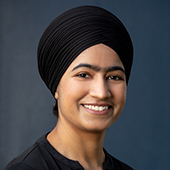
What institution were you most previously with and what was your role?
Prior to this appointment, I was a postdoctoral fellow in the Department of Kinesiology at the University of Texas at Arlington.
What are your research interests or area of specialty?
My research interests are to investigate the underlying mechanisms for attenuated vascular function and heightened sympathetic activation in at-risk populations such as African American and Hispanic individuals.
What sparked those interests?
My primary area of research is to investigate the mechanisms contributing to the development of cardiovascular diseases. Racial disparities in the cardiovascular diseases have been well-known for a long time now however, the mechanisms contributing to these disparities remain unknown.
What are you excited about for your new position at UT?
I am excited to have the opportunity to work alongside some of the most established researchers in the field of exercise physiology and health education. I am looking forward to developing new collaborations with my colleagues and relationships with the diverse Austin community to start addressing the racial and health disparities in the community.
What do you hope to contribute to the College of Education or the Austin community?
I hope to contribute to the College of Education and Austin community through my research to identify the mechanisms contributing to the higher risk of development of cardiovascular diseases in at-risk populations and design interventions to prevent or slow down the progression of cardiovascular diseases in these populations.
What is your program area within your department?
I am in the exercise physiology program in the Department of Kinesiology and Health Education.
Kelvin Phan
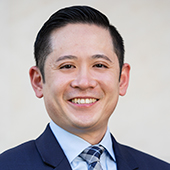
What institution were you most previously with and what was your role?
I was previously at Springfield College (Springfield, MA) where I was working toward my Ph.D. in physical education with a concentration in teaching and administration. I had the privilege of serving as a graduate teaching fellow where my responsibilities included being a preceptor to Athletic Training (AT) students and teaching lab sections within the AT curriculum. In addition, I was tasked with providing medical services to student-athletes participating in intercollegiate sports.
What are your research interests or area of specialty?
My dissertation topic revolves around the use of Novakian concept mapping as an active learning strategy. The focus is to determine concept mapping’s effectiveness in assisting mappers to integrate complex curricular content. The overarching perspective is to search for ways to improve the educational experience for students. As scholars and educators, we must continue to evaluate teaching methods through the scientific process to inform the educative process.
What sparked those interests?
Throughout my educative experiences, I have continued to explore ways to maximize my effectiveness as an educator. As I reflect on my teaching practices, particularly in relation to Schwab’s theory of the Four Commonplaces as the framework for teaching (student, teacher, environment, and curriculum), I wanted a deeper understanding of what and how these interdependent and complex elements impact student learning. The Commonplaces interact in a “kinetic chain-like” state whereby changes to one element will invariably impact the others. To achieve optimal results or improve student learning, these elements must coexist and be somewhat aligned. Pivotal to this framework is the educator, who is responsible for making decisions to manage this system. Of the responsibilities and abilities associated with the educator role, I believe pedagogical content knowledge plays a central role in student learning. Thus, I have interest in studying elements influencing the educational experience to help students connect with course material to enhance learning. My research approach leans more towards pragmatic methodologies and preference toward meaningful outcome measures for the end-user. Pursuing research in this area can contribute to the body of evidence for advancing teaching and learning in higher education.
What are you excited about for your new position at UT?
Higher education is about developing opportunities for students to learn. My position allows me to interact with students in the traditional sense, the classroom. But more uniquely, with my role as the Clinical Education Coordinator, I will be able to help shape their clinical education experiences to promote a valuable learning environment, an element that is imperative to the foundation of their educational pathway.
What do you hope to contribute to the College of Education or the Austin community?
Educational experiences serve two primary purposes: (1) it is for graduates to obtain the knowledge, skills, and behaviors to function as contributing members of their trade, and (2) as a means to work towards individual fulfillment. Entrusted with the task of meeting these purposes, I hope to cultivate an educational experience that not only meets them, but to do so through the lens of the Signature Impact Areas and create graduates that can positively influence the Austin community and beyond.
What is your program area within your department?
My starting date was August 15th, 2020. My program area is Rehabilitation and Movement Sciences. My academic rank is Clinical Assistant Professor.

